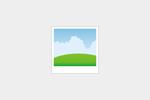

La estación de ferrocarril de Kazichene se encuentra en las afueras de Sofía, Bulgaria, a unos 14 km[...]

Докторска Градина es un parque situado en Sofía, Bulgaria. El parque es conocido por sus hermosas vi[...]

No hay información actualizada de empresas o lugares específicos en tiempo real. Como modelo de leng[...]

El City Garden es un parque situado en el centro de Sofía, Bulgaria, y es un lugar popular para rela[...]

El Mausoleo Battenberg se encuentra en Sofía, Bulgaria y es una estructura histórica que alberga los[...]

El Muzeiko es un museo interactivo de ciencia para niños ubicado en Sofía, Bulgaria. El museo tiene [...]

El National War-History Museum en Sofía, Bulgaria, es un museo dedicado a la historia militar del pa[...]

El parque South Park está ubicado en la ciudad de Sofía, Bulgaria. Es un parque muy popular que ofre[...]

El Museo de Historia de Bulgaria está ubicado en la capital búlgara de Sofía, en la calle Vitoshka n[...]

El Museo Nacional de la Tierra y la Gente "Earth and People" está ubicado en Sofía, Bulgaria, en la [...]

Knyazheska Garden es un parque público ubicado en el centro de Sofía, Bulgaria. Es un lugar popular [...]

No hay información sobre Kokolandia en Sofía, Bulgaria, ya que no existe tal lugar. Por favor, propo[...]

La National Academy of Arts de Sofía es una institución educativa de arte y cultura en Bulgaria. Ofr[...]

El Museo Nacional de Historia de Bulgaria se encuentra en Sofía, la capital del país, en la calle Vi[...]

El Museo Nacional de Historia Natural de Sofía, Bulgaria, es uno de los museos más grandes y antiguo[...]

El National Polytechnic Museum se encuentra en la ciudad de Sofía, Bulgaria. Es un museo dedicado a [...]